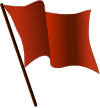- Commune (socialism)
-
Socialism  DevelopmentIdeasEconomic planning · Free association
DevelopmentIdeasEconomic planning · Free association
Equality of opportunity Economic democracy
Adhocracy · Technocracy
Self-management · Direct democracy
Public ownership · Common ownership
Social dividend · Basic income
Production for use
Calculation in kind · Labour voucher
Industrial democracy · Collaboration
Material balance accounting
Social ownership · EconomicsPeopleCharles Hall · Henri de Saint-Simon
Robert Owen · Charles Fourier
William Thompson
Thomas Hodgskin
Louis Blanc · Moses Hess
Karl Marx · Friedrich Engels
Ferdinand Lassalle
William Morris · Mary Harris Jones
Eugene V. Debs · John Dewey
Enrico Barone · Ben Tillett
Edvard Kardelj · Robin Hahnel
Michael AlbertSocialism portal
Politics portalTraditionally, the revolutionary left sees the Commune as a populist replacement for the elitist parliament. The far-left, despite their differences, agree that the commune would have several features. The most important of these is that it would be a local and transparent organization, secondly delegates would be bound by terms, and lastly they could be recalled at any time from their positions. Proponents view the right of recall as a particularly important safeguard against corruption and unresponsiveness among the representatives.
Contents
Introduction
Almost universally, communists, left-wing socialists, anarchists and others have seen the Commune as a model for the liberated society that will come after the masses are liberated from capitalism, a society based on participatory democracy from the grass roots up.
Marx and Engels, Bakunin, and later Lenin and Trotsky gained major theoretical lessons (in particular as regards the "dictatorship of the proletariat" and the "withering away of the state") from the limited experience of the Commune.
Nonetheless, these very advocates provided critiques of the commune. Marx found it aggravating that the Communards pooled all their resources into first organizing democratic elections rather than gathering their forces and attacking Versailles in a timely fashion. Many Marxists based on their interpretation of the historical evidence and Marx's on writings on the subject, believe that the Communards were too "soft" on the non-proletarian elements in their midst.[citation needed]
Within Marxism
Karl Marx, in his important pamphlet The Civil War in France (1871), written during the Commune, advocated the Commune's achievements, and described it as the prototype for a revolutionary government of the future, 'the form at last discovered' for the emancipation of the proletariat.
Thus in Marxist theory, the commune is a form of political organization adopted during the first (or lower) phase of communism, socialism. Communes are proposed as the proletarian counterpart to bourgeois political forms such as parliaments. In his pamphlet, Marx explains the purpose and function of the commune during the period that he termed the dictatorship of the proletariat:[1]
“ The Commune, was to be a working, not a parliamentary, body, executive and legislative at the same time...Instead of deciding once in three or six years which member of the ruling class was to represent and repress the people in parliament, universal suffrage was to serve the people constituted in communes, as individual suffrage serves every other employer in the search for workers, foremen and accountants for his business. ” Marx based these ideas on the example of the Paris Commune, which he described in The Civil War in France:[1]
“ The Commune was formed of the municipal councillors, chosen by universal suffrage in the various wards of the town, responsible and revocable at any time. The majority of its members were naturally working men, or acknowledged representatives of the working class.... The police, which until then had been the instrument of the Government, was at once stripped of its political attributes, and turned into the responsible, and at all times revocable, agent of the Commune. So were the officials of all other branches of the administration. From the members of the Commune downwards, the public service had to be done at workmen's wages. The privileges and the representation allowances of the high dignitaries of state disappeared along with the high dignitaries themselves.... Having once got rid of the standing army and the police, the instruments of physical force of the old government, the Commune proceeded at once to break the instrument of spiritual suppression, the power of the priests.... The judicial functionaries lost that sham independence... they were thenceforward to be elective, responsible, and revocable. ” In addition to local governance, the communes were to play a central role in the national government:[1]
“ In a brief sketch of national organization which the Commune had no time to develop, it states explicitly that the Commune was to be the political form of even the smallest village.... The communes were to elect the "National Delegation" in Paris. The few but important functions which would still remain for a central government were not to be suppressed, as had been deliberately mis-stated, but were to be transferred to communal, i.e., strictly responsible, officials. National unity was not to be broken, but, on the contrary, organized by the communal constitution; it was to become a reality by the destruction of state power which posed as the embodiment of that unity yet wanted to be independent of, and superior to, the nation, on whose body it was but a parasitic excrescence. While the merely repressive organs of the old governmental power were to be amputated, its legitimate functions were to be wrested from an authority claiming the right to stand above society, and restored to the responsible servants of society. ” Contemporary Political Movements Organized Around the Idea of the Commune
- Abahlali baseMjondolo
- Homeless Workers' Movement
- Landless Workers' Movement
- Zapatista Army of National Liberation
See also
References
Categories:
Wikimedia Foundation. 2010.

